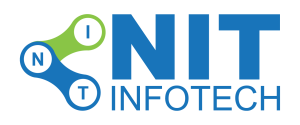In the realm of desktop operating systems, users are often presented with a plethora of options, each offering its own set of features, strengths, and weaknesses. Linux Mint stands out as a popular choice among enthusiasts and novices alike, but how does it fare when compared to other desktop operating systems such as Windows and macOS? In this comprehensive comparison, we’ll delve deep into the various aspects of Linux Mint and its counterparts to help users make informed decisions based on their preferences and requirements.
Overview of Linux Mint
Linux Mint is a community-driven Linux distribution based on Ubuntu, which itself is based on Debian. It aims to provide a user-friendly experience out of the box, with a focus on simplicity, stability, and ease of use. One of the key distinguishing factors of Linux Mint is its inclusion of proprietary software such as multimedia codecs, which enhances the out-of-the-box experience for users.
Strengths of Linux Mint
- User-Friendly Interface: Linux Mint features a familiar desktop environment, with the Cinnamon, MATE, and Xfce editions catering to different preferences. The interface is intuitive and customizable, making it accessible to users of all levels.
- Software Center: The Linux Mint Software Manager offers a vast repository of applications, allowing users to easily discover and install software packages with a few clicks.
- Stability and Performance: Linux Mint is known for its stability and performance, with regular updates ensuring security patches and bug fixes.
- Community Support: As a popular Linux distribution, Linux Mint benefits from a vibrant community of users and developers who provide support, documentation, and resources.
Areas for Improvement
- Limited Gaming Support: While Linux gaming has improved significantly in recent years, it still lags behind Windows in terms of game compatibility and performance, particularly for AAA titles.
- Hardware Compatibility: Although Linux Mint generally supports a wide range of hardware, users may encounter compatibility issues with certain proprietary hardware components such as graphics cards and Wi-Fi adapters.
- Software Ecosystem: While Linux Mint offers a comprehensive selection of open-source software, users may miss out on popular proprietary applications and games that are only available for Windows and macOS.
Windows: The Dominant Player
Windows, developed by Microsoft, is perhaps the most widely used desktop operating system globally, with versions spanning from Windows XP to the latest Windows 11. It boasts extensive software compatibility, a vast ecosystem of third-party applications, and widespread adoption in both personal and enterprise environments.
Strengths of Windows
- Software Compatibility: Windows enjoys broad software compatibility, with a vast array of applications and games available for the platform.
- Gaming: Windows remains the dominant platform for gaming, with the majority of AAA titles developed and optimized for the Windows operating system.
- Enterprise Integration: Windows offers robust enterprise features and integration with Microsoft’s suite of productivity tools such as Office 365 and Azure.
- Hardware Support: Windows supports a wide range of hardware configurations out of the box, with extensive driver support for popular hardware components.
Areas for Improvement
- Security Vulnerabilities: Windows has historically been susceptible to security vulnerabilities and malware attacks, requiring users to implement additional security measures such as antivirus software and regular updates.
- Resource Intensive: Windows tends to be more resource-intensive compared to Linux Mint, particularly in terms of system requirements and memory usage.
- Cost: While Windows 10 offers a free upgrade from previous versions for eligible users, Windows licenses can be costly for new installations, especially for the Pro and Enterprise editions.
macOS: The Apple Ecosystem
macOS, developed by Apple Inc., is the operating system powering Macintosh computers, including the MacBook, iMac, and Mac Pro. Known for its sleek design, seamless integration with other Apple devices, and robust ecosystem of creative tools, macOS has garnered a dedicated following among professionals and creatives.
Strengths of macOS
- User Experience: macOS offers a polished and intuitive user experience, with a clean interface and seamless integration with other Apple devices such as iPhones and iPads.
- Productivity Tools: macOS includes a suite of productivity tools such as Pages, Numbers, and Keynote, as well as professional-grade creative software like Final Cut Pro and Logic Pro.
- Security: macOS is renowned for its robust security features, including Gatekeeper, FileVault, and built-in malware protection, providing users with a secure computing environment.
- Developer Tools: macOS offers powerful developer tools such as Xcode, making it a preferred platform for software development and app deployment on the Apple App Store.
Areas for Improvement
- Hardware Limitations: macOS is limited to Apple’s proprietary hardware, which can be expensive compared to commodity PC components. Upgrading or repairing Mac hardware may also be more challenging.
- Software Compatibility: While macOS offers compatibility with a wide range of applications, users may encounter limitations when it comes to certain specialized software or games that are only available for Windows.
- Customization: macOS offers limited customization options compared to Linux Mint and even Windows, with fewer options for tweaking system settings and appearance.
Conclusion: Choosing the Right Desktop Operating System
In summary, the choice between Linux Mint, Windows, and macOS ultimately depends on your specific needs, preferences, and priorities. Linux Mint offers a compelling option for users seeking a free, open-source operating system with robust performance and customization options. Windows remains the go-to choice for gamers, enterprise users, and those requiring broad software compatibility. macOS excels in the realm of design, creativity, and seamless integration within the Apple ecosystem.
Ultimately, each operating system has its own strengths and weaknesses, and the ideal choice will vary depending on your individual requirements and workflow. Whether you prioritize gaming performance, software compatibility, or creative tools, conducting thorough research and evaluating your options will help you make an informed decision when selecting the right desktop operating system for your needs.

